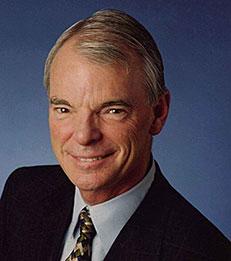Opinion
The Real Challenges to Growth
—


The growing concentration of wealth, together with highly uneven educational quality, is contributing to declines in intergenerational economic mobility, in turn threatening social and political cohesion.
By A. Michael Spence
Advanced economies’ experience since the 2008 financial crisis has spurred a rapidly evolving discussion of growth, employment, and income inequality. That should come as no surprise: For those who expected a relatively rapid post-crisis recovery, the more things stay the same, the more they change.
Soon after the near-collapse of the financial system, the consensus view in favor of a reasonably normal cyclical recovery faded as the extent of balance-sheet damage – and the effect of deleveraging on domestic demand – became evident. But, even with deleveraging now well under way, the positive effect on growth and employment has been disappointing. In the United States, GDP growth remains well below what, until recently, had been viewed as its potential rate, and growth in Europe is negligible.
Employment remains low and is lagging GDP growth, a pattern that began at least three recessions ago and that has become more pronounced with each recovery. In most advanced economies, the tradable sector has generated very limited job growth – a problem that, until 2008, domestic demand “solved” by employing lots of people in the non-tradable sector (government, health care, construction, and retail).
Read full article as published in Project Syndicate
___
A. Michael Spence is the William R. Berkley Professor in Economics & Business.
Soon after the near-collapse of the financial system, the consensus view in favor of a reasonably normal cyclical recovery faded as the extent of balance-sheet damage – and the effect of deleveraging on domestic demand – became evident. But, even with deleveraging now well under way, the positive effect on growth and employment has been disappointing. In the United States, GDP growth remains well below what, until recently, had been viewed as its potential rate, and growth in Europe is negligible.
Employment remains low and is lagging GDP growth, a pattern that began at least three recessions ago and that has become more pronounced with each recovery. In most advanced economies, the tradable sector has generated very limited job growth – a problem that, until 2008, domestic demand “solved” by employing lots of people in the non-tradable sector (government, health care, construction, and retail).
Read full article as published in Project Syndicate
___
A. Michael Spence is the William R. Berkley Professor in Economics & Business.
